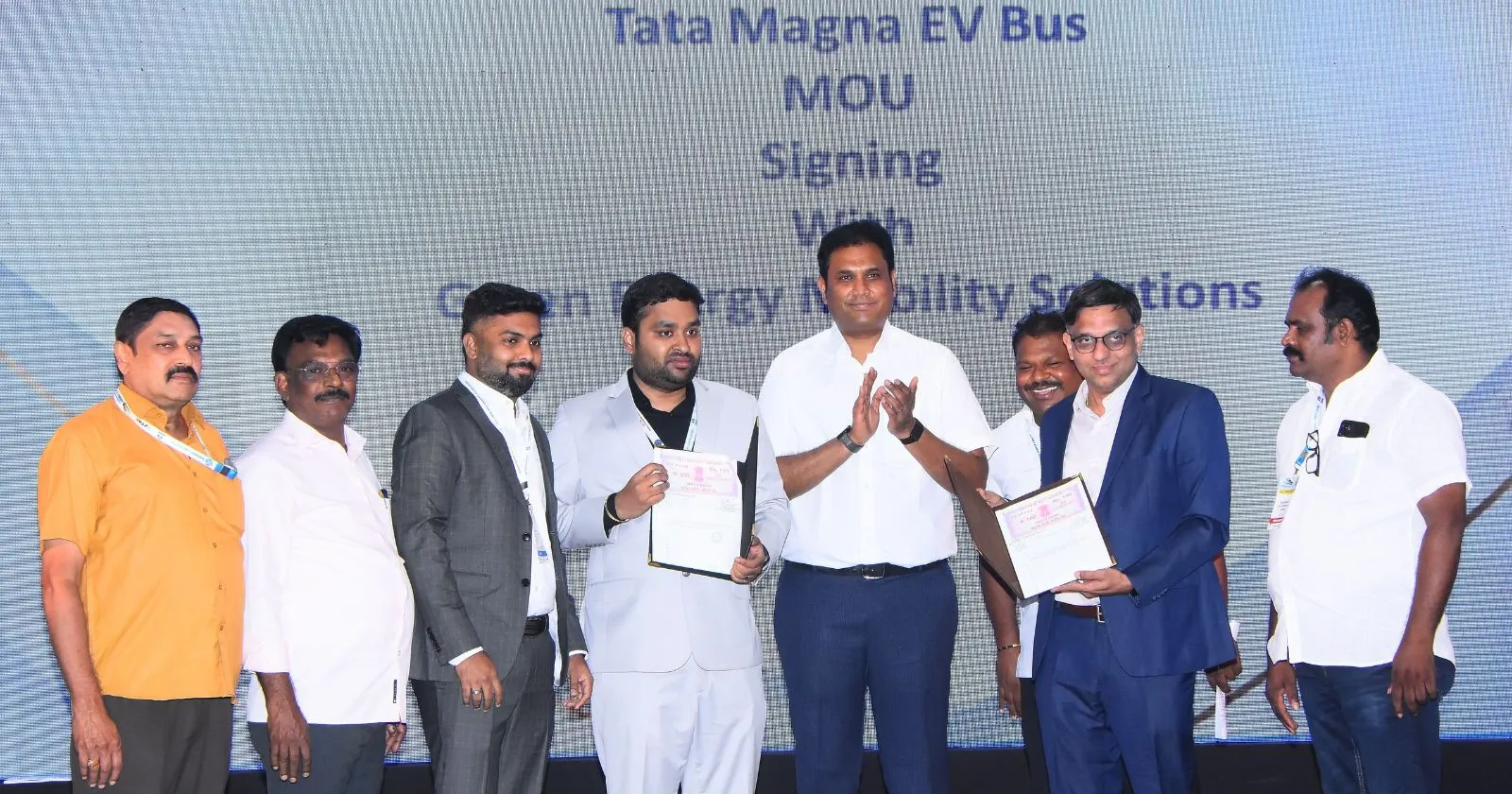Tata Motors has entered into a historic Memorandum of Understanding (MoU) with the EV vertical of Universal Bus Services (UBS) named Green Energy Mobility Solutions Pvt. Ltd. (GEMS), to supply 100 battery-powered Magna EV intercity coaches. The step, launched at the Passenger Vehicle Expo 2.0 in Chennai, positions Tata Motors as the pace-setter of India's transition to clean long-distance passenger mobility.
A Strategic Bet on Intercity Electrification
While Tata Motors has already established itself in the intra-city electric bus segment with products like Starbus EV and Ultra EV, Magna EV intercity coach is its first major push into the long-distance electric public transport segment. The tie-up with GEMS is a deliberate push of Tata's EV bus portfolio beyond the city limits, directly catering to the growing demand for green intercity mobility, particularly in South India.
With the Magna EV offering a range of 300 km on one charge and a 44-seater option, Tata is obviously looking to challenge traditional diesel-run buses on Tier 1–Tier 2 intercity routes. The move also takes place against the backdrop of state and central governments promoting private fleet operators towards zero-emission mobility, enabled by improved subsidies and developing charging systems along highways.
Why This Announcement Now?
1. Upcoming State-Level Policies: Tamil Nadu has been seriously promoting EV adoption, especially in the commercial space. The presence of the state's Industries Minister Dr. T.R.B. Rajaa, at the signing of the MoU indicates volumes about the agreement finding its place within overall state-led sustainability and mobility projects.
2. EV Policy Tailwinds: A series of policy initiatives, such as an extension of FAME II subsidies, net-zero mobility draft regulations, and public-private collaborations for highway fast-charging, has made the business case for intercity electric buses stronger than ever.
3. Market Readiness: UBS's readiness to induct 100 Magna EVs signifies growing confidence among private bus operators in the economical and dependable nature of electric coaches. UBS, with its GEMS brand, is building an early-mover advantage for itself in a market segment that is poised for growing demand over the next two years.
Business Impact: For Tata Motors and the Industry
For Tata Motors:
Market Diversification: The deal introduces Tata's EV bus business to the private luxury and intercity segment, a market traditionally not penetrated by electric platforms.
Technology Showcase: The Magna EV is a demonstration of the result of feedback-driven development, which is a testament to Tata's emerging capabilities in long-distance EV design, vehicle architecture, and fleet connectivity.
Fleet Edge Ecosystem: With the integration of its connected vehicle solution, Fleet Edge, into the new buses, Tata also gets to drive recurring revenue opportunities through predictive maintenance, real-time diagnostics, and service-based subscriptions.
For UBS and the Private Operator Ecosystem:
Operational Efficiency: GEMS will have lower operating costs, improved fleet uptime (over 95%, as per Tata's existing EV bus data), and less maintenance than diesel buses.
Brand Differentiation: Against a competitive intercity travel marketplace, UBS stands to use its electric fleet to capture a new generation of premium-paying, environmentally conscious travellers.
Fleet Electrification Benchmark: UBS's bold order for 100 buses will likely establish a template for other private operators considering electrification in the 200–500 km segment.
What Makes the Magna EV Special?
- 300 km single charge range, perfect for mid-range routes
- 44-Seater Layout with emphasis on comfort and passenger capacity
- Advanced Safety: Equipped with Electronic Braking System (EBS) and Electronic Stability Control (ESC)
- Fleet Edge Enabled: Tata proprietary telematics platform provides operators with real-time information, predictive analysis, and maintenance optimisation.


